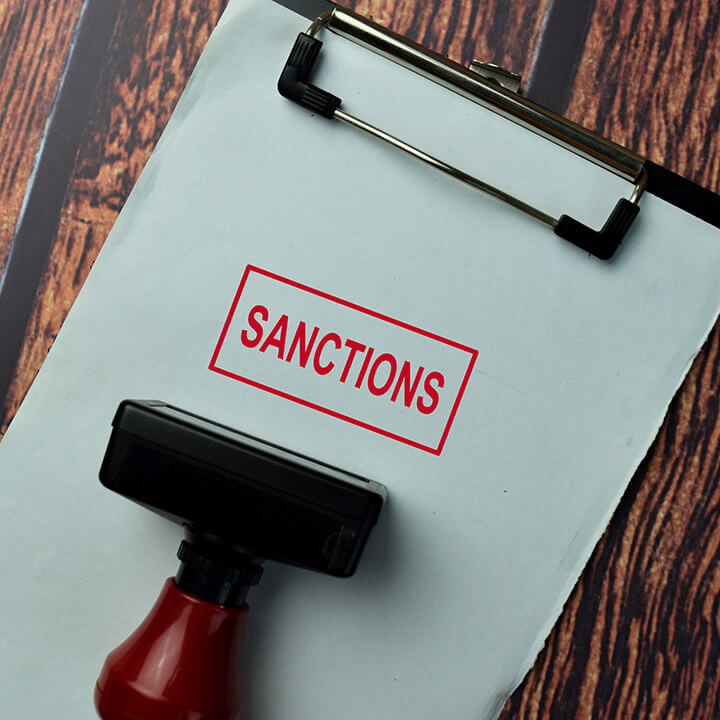UK Parliament fast-tracks changes to sanctions legislation; introduces strict liability test
17th March 2022
We reported in our earlier briefing on the corporate aspects of the Economic Crime (Transparency and Enforcement) Act 2022 (the Act) which was fast-tracked through Parliament following the Russian invasion of Ukraine. In this briefing, Walker Morris Regulatory & Compliance expert and Head of International Trade Andrew Northage summarises the regulatory aspects and what they mean for businesses.
Sanctions – key changes
As the government explained in its press release, the Act will mean that the government can move more quickly to impose sanctions against oligarchs already designated by the UK’s allies, as well as intensifying its sanctions enforcement. The key changes are:
- Introduction of a new strict liability test regarding HM Treasury’s power to impose monetary penalties for breaching financial sanctions. This means that in determining whether there has been a breach or a failure to comply with an obligation, any requirement to have ‘known, suspected or believed’ any matter will be ignored. As we discuss below, this change will have the greatest impact on businesses.
- Introduction of an ‘urgent procedure’ to designate individuals/entities as sanctioned by name or description, making it easier to adopt sanctions imposed by other specified jurisdictions including the US, EU, Australia and Canada.
- HM Treasury will be able to publish reports on financial sanctions breaches where no monetary penalty has been imposed but it is satisfied, on the balance of probabilities, that there has been a breach or a failure to comply with an obligation.
- It will no longer be a requirement for a review of a decision to impose a monetary penalty to be carried out by a Minister personally, thereby speeding up the process.
Unexplained wealth orders – key changes
As the government explained in its factsheet about the reforms, an unexplained wealth order (or UWO) is an investigatory order placed on a respondent whose assets appear disproportionate to their income to explain the origins of their wealth. The key changes are:
- Where the respondent is not an individual, the enforcement authority’s application to the court may also specify a person who is a ‘responsible officer’ of the respondent – this includes, for example, any director of the respondent or any person in accordance with whose directions or instructions the board of directors or equivalent body of the respondent are accustomed to act.
- Introduction of an alternative test to the income requirement, i.e. that the property has been obtained through unlawful conduct.
- The power to extend the period for which an interim freezing order has effect.
- Limits on costs orders in relation to UWOs.
Practical impact and how we can help
The introduction of a new strict liability test for breaching financial sanctions will concern businesses the most. While this change is not yet in force [1], it will significantly increase the likelihood of monetary penalties being imposed on a business that unwittingly deals with a designated entity or individual. It will be more important than ever to have robust controls, procedures and up-to-date staff training in place. Walker Morris will continue to monitor and report on developments.
Sanctions rules are complex, can affect a business in multiple jurisdictions, and are evolving at pace. Please contact Andrew if you require advice or assistance on sanctions compliance and associated issues, including training, contract review and supply chain audits; or if you have queries about any other aspect of the Act.
[1] The only provisions of the Act currently in force are those dealing with the imposition of the sanctions themselves. These provisions were acted on immediately with the UK sanctioning over 370 more individuals.


